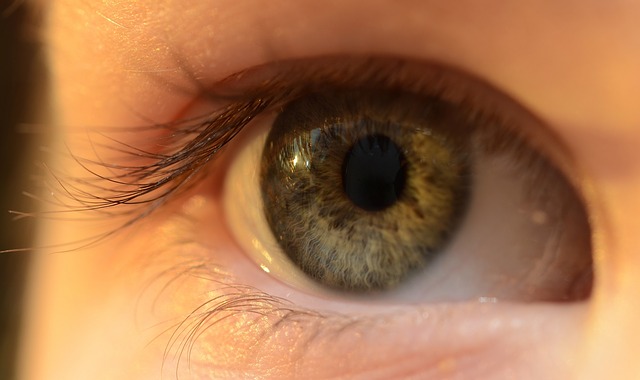<p style="text-align: justify;">We know that the visual sense is for the most reasons the most important one. Something as sensitive as an eye, or a process of getting the image through to our brain and forming an identical image of reality in real time is considered to be a miracle of nature and a proof how perfect humans are.</p>
<p style="text-align: justify;">This perfected process of vision can be tainted as we grow old. Reasons vary and can be mild to serious, but there is one condition that develops slowly over time and commonly accompanies aging. Cataract – a foe of clear vision as a cloudy patch that develops in the lens of the eye causing blurred and hazy vision.</p>
<h3 style="text-align: justify;">Some of the Symptoms of Age-related Cataracts</h3>
<p style="text-align: center;"><img class="aligncenter size-full wp-image-841" title="Aging Eyes: Age-Related Cataracts" alt="Aging Eyes: Age-Related Cataracts" src="https://medusamagazine.com/wp-content/uploads/2015/06/Lens.jpg" width="640" height="360" /></p>
<p style="text-align: justify;">The first thing and the most common one people notice is blurry vision. These can also be noticed along the way:</p>
<ul style="text-align: justify;">
<li>Colors may seem washed-out and faded</li>
<li>Seeing unusual spots</li>
<li>Halos that appear around bright lights (headlights or street lights for example)</li>
<li>You are easily bothered by bright lights, or you have difficulty in vision in sunshine or brightly lit rooms</li>
<li>Your vision is worsening with age and is unable to get corrected by glasses</li>
<li>A seriously harsh symptoms like complete blindness in the affected eye</li>
</ul>
<h3 style="text-align: justify;">Known causes</h3>
<p style="text-align: justify;">It is not entirely known what causes age-related cataracts, but it is believed that a certain change happens to the proteins in the lens due to lack of proper distribution of nutrients to the lens itself as we become older. These changed proteins clump together and cause areas of cloudiness, which are blocking bits of light passing through the retina. Even though most people develop cataracts for no apparent reason, there are some known risk factors to be aware of:</p>
<ul style="text-align: justify;">
<li>Smoking</li>
<li>Diabetes</li>
<li>A family history of cataracts</li>
<li>Poor diet and malnutrition</li>
<li>Using steroid medication</li>
<li>Exposure to UV light</li>
</ul>
<h3 style="text-align: justify;">Treatment</h3>
<p style="text-align: justify;">There might be no noticeable problems with your vision at an early stage. Vision decline varies from person to person, so treatment at the early stage should be considered individually. However, as soon as you have troubles to do your daily routine normally – from watching TV and driving to cooking and reading, treatment is considered necessary.</p>
<p style="text-align: center;"><img class="aligncenter size-full wp-image-839" title="Aging Eyes: Age-Related Cataracts" alt="Aging Eyes: Age-Related Cataracts" src="https://medusamagazine.com/wp-content/uploads/2015/06/Eye-surgery.jpg" width="640" height="426" /></p>
<p style="text-align: justify;">If you have a mild case of cataract, a temporary solution would be a possible one – stronger glasses and bright reading lights, but that can take you only so far. Cataracts get worse over time so you will eventually have to go with a more radical solution that is the only effective one – cataract surgery.</p>
<p style="text-align: justify;">Cataract surgery is a procedure of removing the cloudy lens and replacing it with a clear one through a small incision in your eye. It is usually done while you are awake under local anesthetic and you will be let home the same day. This procedure is also done with a laser which replaces the initial steps of cutting with a blade. This type of cataract surgery relies less on surgical skills and is more consistent because of the more accurate incision. However, every case is different so your ophthalmologist will advise the best course of treatment specifically for you.</p>
<p style="text-align: justify;">One thing is certain, you will have an improvement in your vision after the surgery, your vision will settle usually after a few days or weeks. You might still need to wear glasses, and your prescription will probably be different after the treatment, but you will certainly be more confident in your vision and have a healthy and bright view of the world again.</p>

Aging Eyes: Age-Related Cataracts
